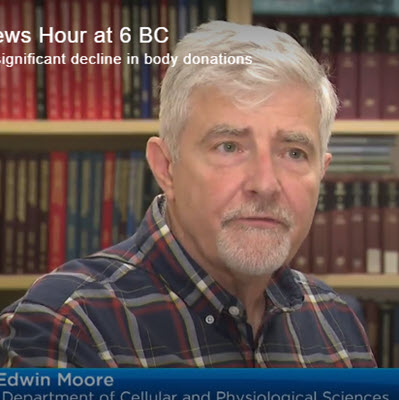UBC is hoping to raise awareness about its cadaver donation program as the number of donations for medical research, surgical practice and testing continues to decline.

That number now ranges from 45 to 50, according to Dr. Edwin Moore, head of the Department of Cellular and Physiological Sciences and the donation program.
“Other universities are also experiencing a decline — not all, but some are — and we don’t know why that’s the case,” he told Global News. “It’s possibly because we were closed for a short time during COVID and people may not realize that we’re back open.”
When the program is fully operational, Moore said about 1,000 students in medicine, dentistry, physical and occupational therapy, midwifery, and biomedical engineering visit to learn anatomy every year. Surgeons also come to practice, learn new techniques and experiment with new methods.
“Every single donation impacts the health and wellbeing of thousands of people in the coming years. It is an extraordinary gift to posterity. The substitute is textbooks, videos and virtual reality, but as every anatomy instructor will tell you and as the students will tell you, it’s not the same.”
Watch Global’s interview with Dr. Moore:
The story quoted above originally appeared on the Global TV’s website, and was broadcast on the BC Global News Hour at 6.
Additional coverage of the cadaver shortage quoting Dr. Moore has since appeared in:
